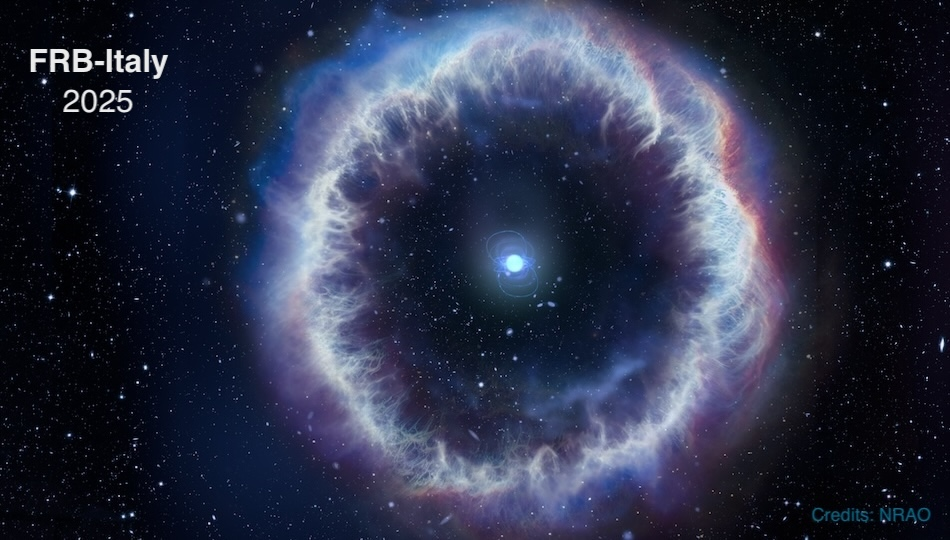Speaker
Description
he radio emission from magnetars is poorly understood and characterized observationally, in particular for what concerns single pulses and sporadic events.
The interest in it was boosted by the recent detection of an extremely bright ms radio signal from the Galactic magnetar SGR 1935+2154, which occurred almost simultaneously with a typical magnetar short burst of X-rays.
As of now, this event remains the only Galactic radio pulse reminiscent of fast radio bursts (FRBs) and the only one with a sound association with a known progenitor.
We performed a long-term campaign of seven Galactic magnetars using the Northern Cross transient radio telescope searching for short timescales and dispersed radio pulses obtaining no detections in ∼480 hours of observation.
Furthermore, under some assumptions on the magnetars properties and energetic behavior, we found that our upper limits point towards the fact that the entire population of FRBs observed cannot be explained by bursts emitted by magnetars.
